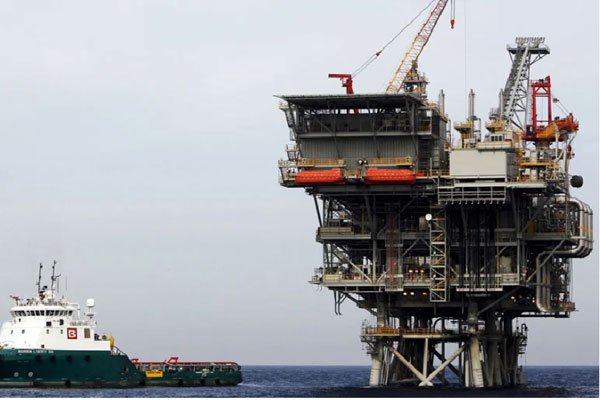Lebanon and Israel, which remain formally at war, have held a first round of talks to settle a long-running dispute over their maritime border. Let’s take a look at the importance of the talks and the dispute in the region in detail…
US officials mediated in the negotiations, which took place at the base of a UN peacekeeping force in the Lebanese town of Naqoura. Both sides insist the talks are not a sign of any normalisation of ties. But an agreement would allow them to exploit potentially lucrative natural gas fields under the Mediterranean Sea.
Lebanon is in dire economic trouble and is in need of additional revenue. The negotiations come less than a month after the United Arab Emirates and Bahrain agreed to establish full relations with Israel after US-brokered deals.
Conflict
Lebanon and Israel have remained in a formal state of war since the Arab-Israeli conflict of 1948-49. While there is no agreed land border between them, they are committed to a ceasefire along the so-called Blue Line.
The boundary was drawn up by the UN after Israeli forces withdrew from southern Lebanon in 2000, ending 22 years of occupation. It is one of the region’s tensest frontiers, where Israel forces face those of the Lebanese army and Hezbollah, and peacekeepers from Unifil attempt to maintain calm.
In 2006, Israel and Hezbollah fought a month-long war that killed some 1,190 Lebanese and 163 Israelis. The conflict ended in a UN-brokered ceasefire.
Disputed gas fields
Lebanon and Israel have been involved in a maritime dispute regarding the exact location of their sea borders. The contested area is important to both countries because it might harbour natural-gas fields.
Israel has one of the largest gas fields in the region, the Leviathan field. Parts of that field could potentially extend into territory claimed by both Israel and Lebanon. This gas deposit is so big, it could potentially lead to Israel becoming an energy exporter.
Meanwhile, Egypt has what has been called a “supergiant gas field” within its waters, the Zohr gas field. Still, Egypt might face a gas-energy crisis despite being one of the largest gas-producing countries in Africa.
What happened at the talks?
Lebanon and Israel agreed earlier this month to try to resolve their overlapping claims in the eastern Mediterranean following almost three years of US mediation. The first round of talks at the headquarters of the UN Interim Force In Lebanon (Unifil) last week were facilitated by US Assistant Secretary of State for Near Eastern Affairs David Schenker and the US ambassador to Algeria, John Desrocher. Both sides agreed to meet again on 28 October.
The head of the Lebanese delegation, Army Deputy Chief of Staff Brig-Gen Bassam Yassin, said the meeting launched “the train of technical, indirect negotiations” and represented “the first step on a thousand-mile journey for demarcating the southern borders”. A spokesperson for the Israeli energy ministry, whose director general Udi Adiri led Israel’s delegation, said the two sides “discussed the framework to continue the talks and outlined the schedule for the upcoming meetings”.
Now you can get handpicked stories from Telangana Today on Telegram everyday. Click the link to subscribe.
Click to follow Telangana Today Facebook page and Twitter .

